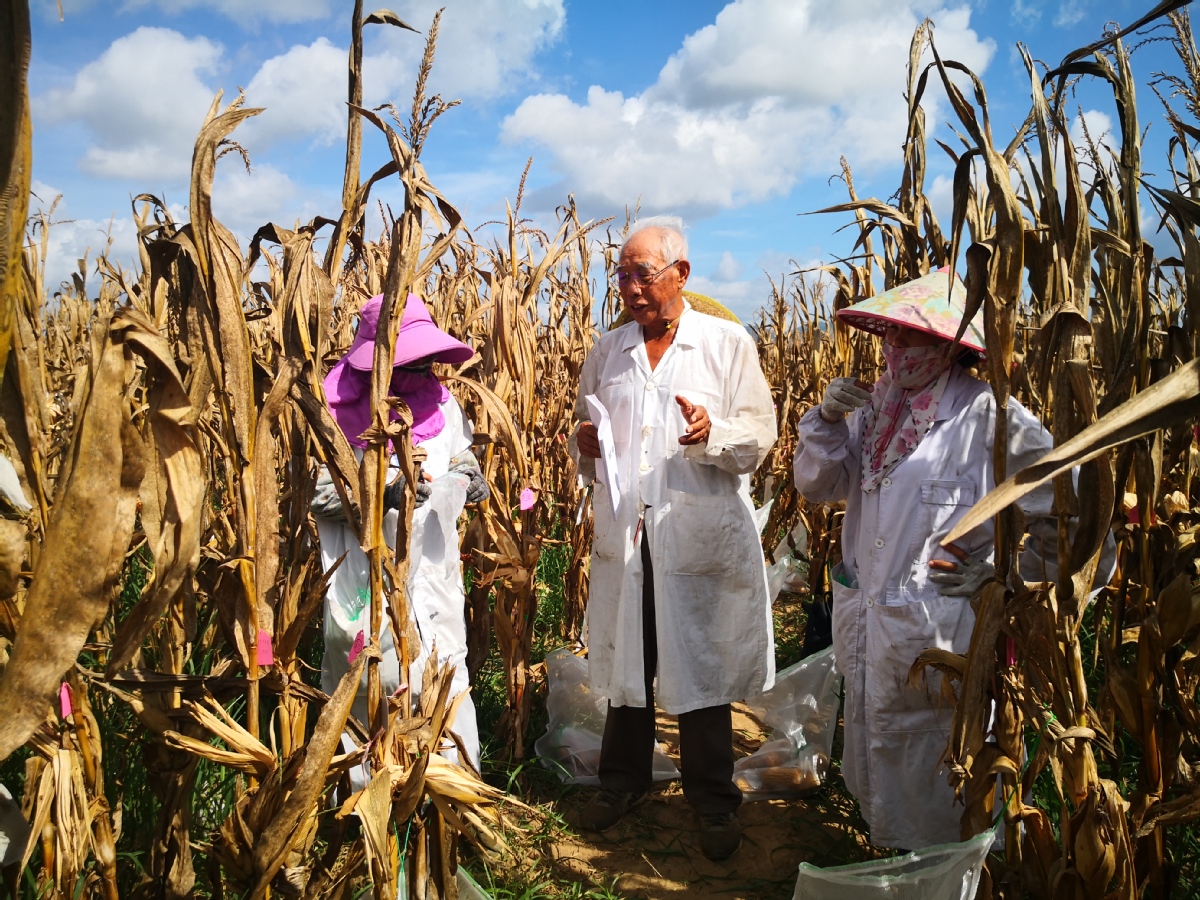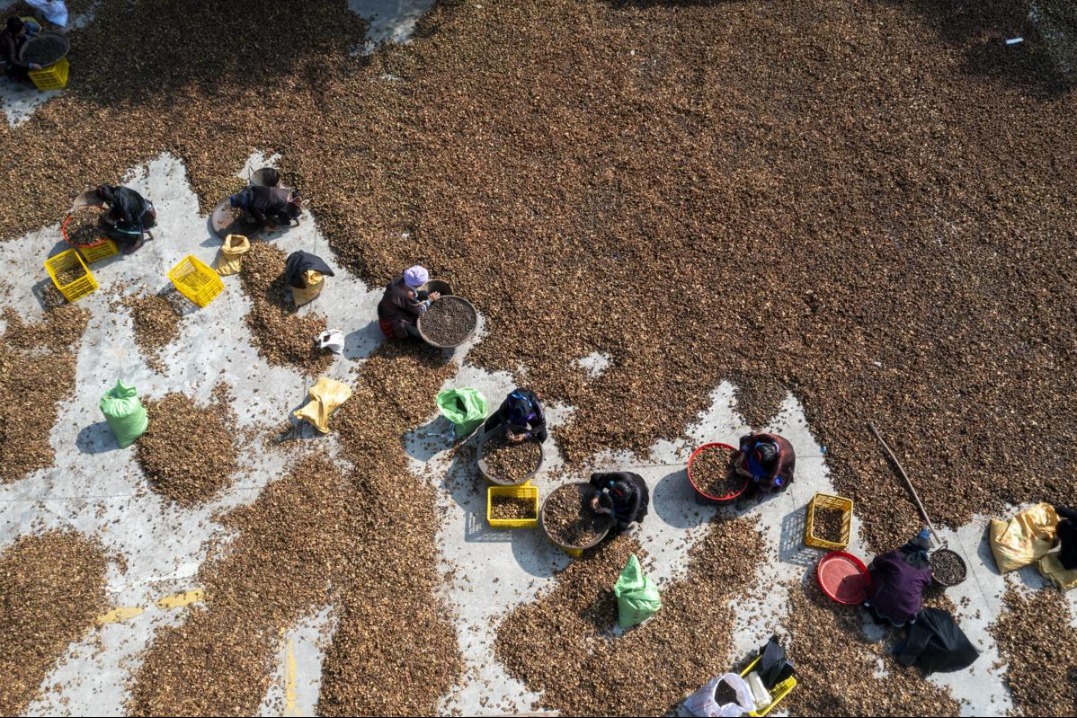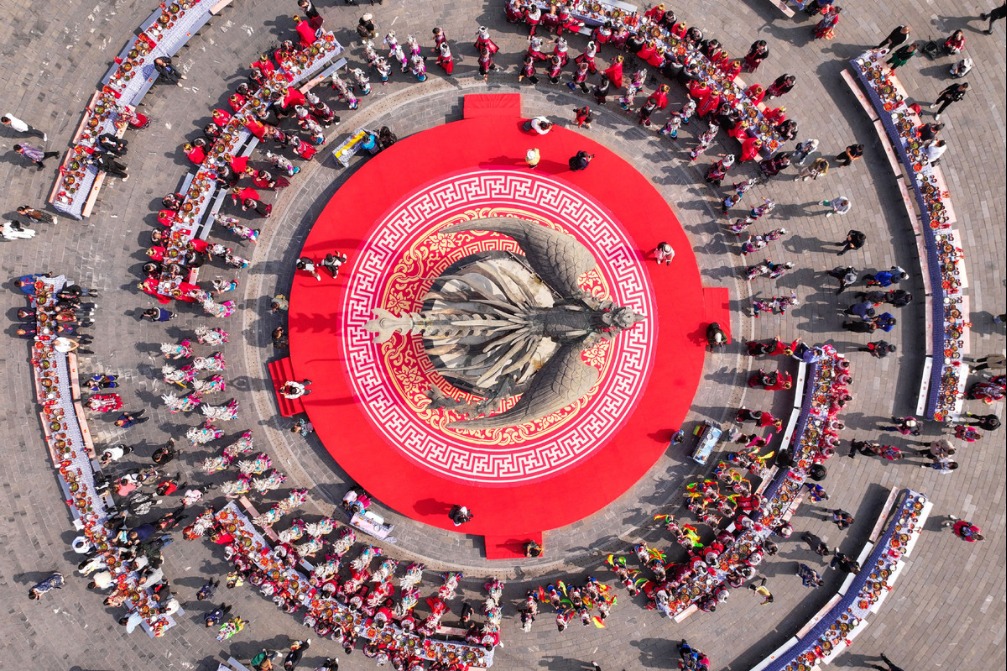Lifetime in kernels cultivates national dividends from corn


Researcher hopes more youngsters will help ensure food security
When Cheng Xiangwen, an 85-year-old corn seed engineer and researcher at the Hebi Academy of Agricultural Sciences in Henan province, got the message that he'd won the honorary title of "the most beautiful scientific and technological worker in the country" last year, he was at work in an experimental field in Hainan province.
"I was excited for several days. I really appreciate the country's support for the seed industry. The honor is not mine, it belongs to everyone in the field," Cheng told the media.
He has been involved in research into high-yield corn for 57 years. "I will spare no effort in fulfilling my duties as a researcher. I'm dedicated to devoting my life to the country's corn seed engineering work," he said.
Cheng has developed a special relationship with corn. His dream is to engineer the best seeds possible for farmers.
After graduating from an agricultural technical school in 1963, he was assigned to work as a promoter of agricultural science and technology in Xunxian county in Henan. At the time, yields were low. It was even too much to hope that villagers would have enough to eat.
Cheng remembers that when he went to Xingzhuang village in Juqiao town to find out how the corn was growing, a woman approached him with tears in her eyes and said: "You're a college student. Can't you find a way for us to harvest more corn? If we had enough steamed cornbread, the children wouldn't go hungry."
Born and raised in the countryside, Cheng said he would never forget that scene, and it set his mind to the pursuit of high-yield corn seed. "I will do what the Party and the people need me to do," he told himself.
He was convinced that a single seed could change the world and benefit all people. Over the next five decades, he bred 39 varieties of corn seed. The first batch he developed helped Xunxian raise its corn output per hectare from 750 kilograms to between 3.75 to 4.5 metric tons. That figure rose further to about 7.5 tons in the first years of this century.
Today, Cheng's seeds have been planted in more than 20 million hectares of farmland nationwide and generate revenues of more than 27 billion yuan ($4.2 billion).
The subtropical weather in Hainan province is more favorable to the development of corn seeds, so Cheng has celebrated the Lunar New Year 55 times on the island.
As a result of his work, the Xunxian Agricultural Sciences Institute has developed from a one-room, one-person department into an academy of agricultural sciences with nearly 100 researchers, and assets of more than 10 million yuan.
Cheng said the outbreak of the novel coronavirus, which upset global supply chains, should have drawn the world's attention to the importance of food security. He referred to high-quality seeds as the "microchips" of agriculture and hopes more young people will make careers in agricultural science and technology research.
He retired in 2016 at the age of 80 but still maintains a few research projects, including a 0.6-hectare corn field in Hainan.
"I have researched corn my entire life. It has become a part of me. When I can't see corn, I feel uneasy," he said.
- China clarifies criminal penalties for noncompliance with court rulings
- Xi calls on China, Britain to adopt rational, objective perspective on each other's development
- President Xi at APEC Peru 2024
- Xi attends 19th G20 Summit
- Cancer survival rates in China on the rise
- Stampede injures students in Xinjiang




































